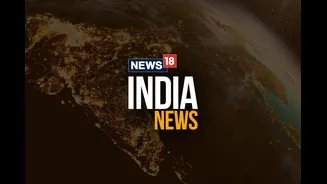The Freebie Debate
The contentious issue of distributing freebies in Delhi has ignited a political firestorm, eliciting diverse responses and raising crucial questions about
fiscal responsibility and the direction of governance. The provision of free or subsidized services and goods, often seen as a means to garner public support, has become a focal point, with proponents and critics vigorously presenting their viewpoints. Proponents argue that these measures provide crucial relief to economically vulnerable citizens, boosting their access to essential services and improving their quality of life. Critics, however, are concerned about the financial sustainability of such initiatives and their potential to strain the state's resources, thus impeding long-term development. The debate is multifaceted, encompassing budgetary considerations, the welfare of the populace, and the larger context of electoral politics.
Political Ramifications
The implications of this controversy extend far into the political sphere, influencing alliances, and shaping public perception of the involved parties. Political figures are leveraging the freebie issue to both gain support and damage opponents, thus impacting the electoral landscape. Accusations of fiscal irresponsibility, coupled with claims of catering to specific segments of the electorate, are circulating, thereby fueling the political discourse. The debate is also affecting coalition dynamics, as parties are compelled to articulate their positions clearly, possibly leading to rifts or alliances based on their stances regarding the distribution of freebies. Furthermore, the public's viewpoint on these policies and the politicians promoting them may change over time, having profound consequences for electoral outcomes and the future direction of the city's administration. Political parties are constantly assessing the long-term effects of their policies on the voters.
Public Reactions Emerge
The public's responses to Delhi's freebie distribution are diverse and multifaceted. Some groups are supporting it, pointing to the economic advantages and enhanced accessibility that freebies offer to underprivileged sections of the population. They view these policies as crucial steps toward social welfare and equitable resource distribution. Other members of the public have articulated worries about their financial sustainability and potential impact on other vital services. They emphasize the necessity of transparent fiscal practices and the efficient allocation of public funds. Social media and mainstream news platforms are abuzz with opinions, with numerous citizens sharing their experiences and perspectives on the matter. Public perception fluctuates over time, affected by the efficacy of the freebies, economic changes, and shifting political strategies. The ongoing discussion illustrates the complexities and significance of addressing the issue.
Long-Term Effects
The long-term effects of providing freebies in Delhi are far-reaching and warrant careful consideration. The financial strain on the government coffers is a major concern. If the city's spending exceeds its revenue, it might lead to debt, budget cuts for vital services, or increased taxes. The impact on infrastructure development is another important area. Funds meant for infrastructure projects, like roads, schools, and hospitals, might be diverted to pay for freebies, leading to a delay in development. The economy will also feel the heat. A dependence on freebies could affect the incentive for individuals to work and be productive. While short-term benefits may be visible, the long-term consequences could harm the city's economic health and future growth. Therefore, it is important to analyze these different impacts to make informed decisions about public policies.
Seeking a Balance
Finding a balance between social welfare and fiscal responsibility is crucial in this debate. Policymakers must carefully weigh the advantages of providing essential goods and services to vulnerable individuals against the potential negative financial and economic effects. A strategy that prioritizes transparency and efficient resource allocation is essential. This would involve a clear explanation of all policies and their financial ramifications, guaranteeing that resources are used efficiently. An essential element is also assessing the effect of these programs on the city's economy and its people. This balance requires careful planning, thorough analysis, and constant evaluation to guarantee that Delhi's policies help all citizens and support long-term sustainability. The key is establishing policies that offer immediate assistance without harming long-term development.














